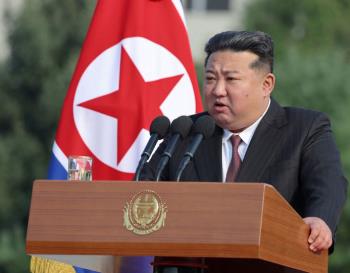Alwaght- As the government in Venezuela is stabilizing the situation in the country amid a failure of the opposition forces to materialize some of their promises to topple President Nicolas Maduro, the president boost of the Popular Voluntary Forces (PVF) in the country.
The PVF was launched in 2008 by the late President Hugo Chavez and have a considerable role in supporting the official Venezuelan government. They are operating under the direct leadership of the president.
Maduro has recently announced that he intends to enlarge the popular force from the current 2.1 million to 3 million. He also plans to add this force to the armed forces of Venezuela.
Changing the constitution
The plan to boost the national army by the president is expected to take effect by merging the PVF to the National Bolivarian Armed Forces of Venezuela (FANB). The Venezuelan leader noted that he was paving the way for this motion by introducing reforms to the nation’s constitution. The announcement to reform the national constitution, the analysts suggests, goes in line with a promised policy by the government to act according to the law, an approach disclosing the fallacy of the oppositions claims that the government of Maduro breaches the law and is, thus, illegitimate.
Dividing government and military gets difficult
The integration of the PVF into the armed forces comes amid the current crisis between the government and the opposition which three months ago sought a failed coup on the strength of the US to oust President Maduro.
Juan Guaidó, the leader to the opposition in January this year abruptly announced himself the acting president of the Latin American country. The apparently illegal step by Guaidó, also the president of the National Assembly of Venezuela, came after a green light was given by the US and its allies in the West and the region. The announcement sparked nationwide tensions. Only hours after Guaidó claim of the presidency, the US and some of the regional opponents of Venezuela recognized him.
Washington and its allies seek to squeeze the military by sanctions to press it to withdrawing support for the democratically-elected president. They so far have failed to make any change to separate the president from the loyal military.
After the integration, the fueling the divisions between the government and the armed forces gets even harder because in practice the FANB will comprise a large number of the NVF who are under direct order of the government. In fact, the separation of these forces from the government will much tougher or even impossible.
Shadow of war and threats on Venezuela
That the central government has made the decision about the merger after three months of the failed coup has to do with the existence of the shadow of war by the US against Venezuela.
Since the beginning of the crisis, marked by the opposition street protests, the White House threatened Caracas with direct invasion. The threats by President Donald Trump remain in place after three months of the political predicament in the country. The government is caught between home pressures of the opposition and military threats of the US.
Recently, some global news outlets have reported that a warlike American think tank collected at least 40 security, political, and military officials from the US, Colombia, and Brazil in a secret meeting to discuss the military invasion of Venezuela to take down Maduro.
The meeting organized by the Center for Strategic and International Studies (CSIS), based in Washington indicates that the government of Donald Trump has gone disappointed with the practicality of various options to remove the Venezuelan leader and now is serious weighing up the military action choice more than any other time.
Moscow has repeatedly disclosed Washington intention to intervene militarily in Venezuela. Maria Zakharova, the spokeswoman for the Russian foreign ministry, on February 7 told the journalists in a briefing that Russia after precise examinations had concluded that the government of Trump planned military action to oust Maduro and that Washington was preparing the condition for the intervention.
Latent risk of a military invasion gives the government in Caracas to seek bolstering of its armed forces. This shapes the main motivation for Nicolas Maduro to press forward with the plan to blend the voluntary forces in the military.



























